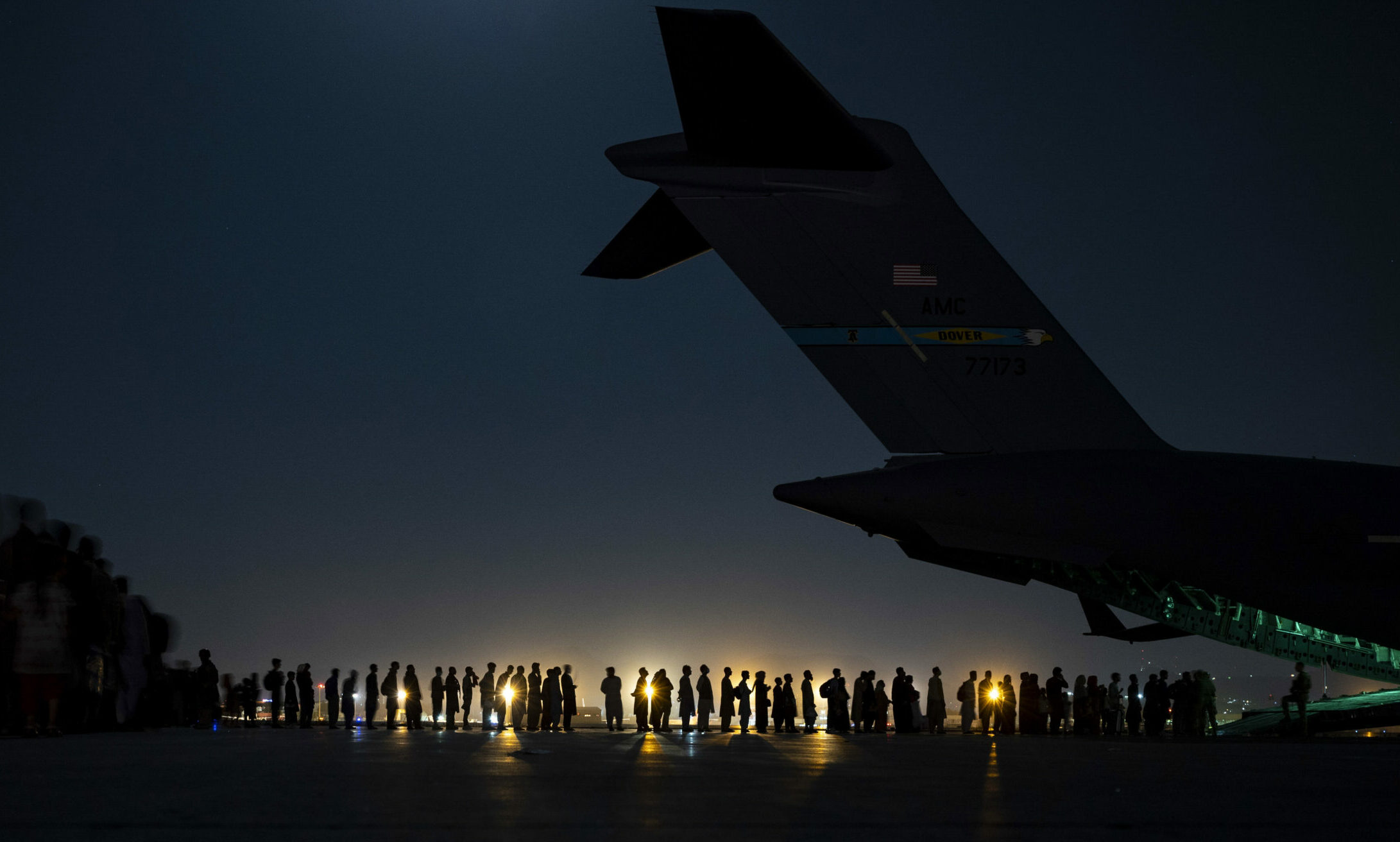Updated August 2021 by Brown University’s Watson Institute.
This report uses recent data to update our 2020 calculation of the number of people displaced in the eight most violent wars the United States has waged since 2001. Using 2020 and 2021 data unavailable at the time of our initial report, this update conservatively estimates that at least 38 million people have fled their homes—around one million more displaced people than a year earlier. The findings below incorporate this new data.
Our report was the first to measure comprehensively the number of people displaced in the wars the U.S. military has waged since President George W. Bush announced a “global war on terror” following Al Qaeda’s September 11, 2001 attacks. The report details a methodology for calculating wartime displacement, provides an overview of displacement in each war-affected country, and points to displacement’s individual and societal impacts. The full report is available for download.
Wartime displacement (alongside war deaths and injuries) must be central to any analysis of the post-9/11 wars and their consequences. Displacement also must be central to any consideration of the future use of military force by the United States or others. Ultimately, displacing 38 million—and perhaps as many as 60 million—raises the question of who bears responsibility for repairing the damage inflicted on those displaced.
Major Findings
- The U.S. post-9/11 wars have forcibly displaced at least 38 million people in and from Afghanistan, Iraq, Pakistan, Yemen, Somalia, the Philippines, Libya, and Syria. This exceeds those displaced by every war since 1900, except World War II.
- 38 million is a very conservative estimate. The total displaced by the U.S. post-9/11 wars could be closer to 49–60 million, which would rival World War II displacement.
- 26.7 million people have returned after being displaced, although return does not erase the trauma of displacement or mean the displaced necessarily have returned to their original homes or a secure life. Children born in displacement who follow parents home are also among those counted as “returnees.”
- Any number is limited in what it can convey about displacement’s damage. The people behind the numbers can be difficult to see, and numbers cannot communicate how it might feel to lose one’s home, belongings, community, and much more. Displacement has caused incalculable harm to individuals, families, towns, cities, regions, and entire countries physically, socially, emotionally, and economically.





